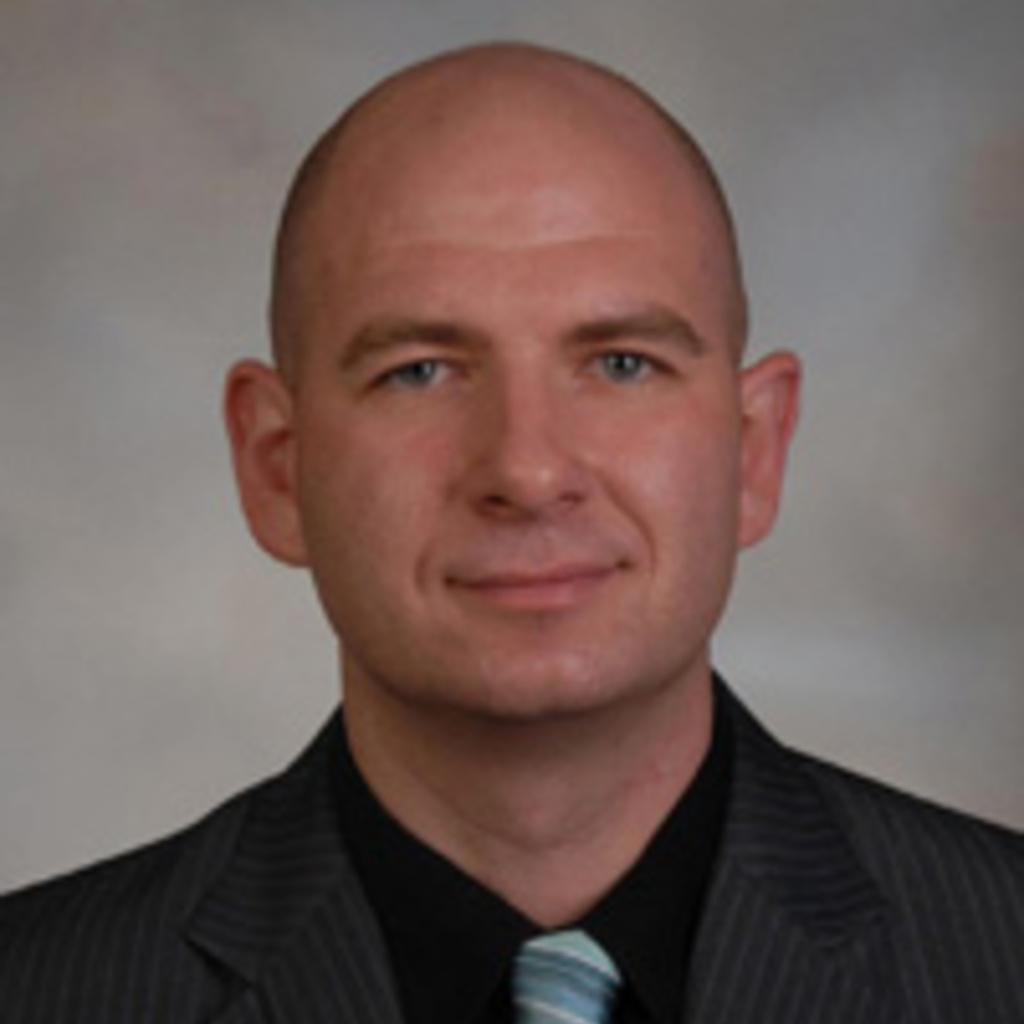Main navigation
Current Mentors
Below is a list of current thesis mentors.
Note: The MSTP is no longer maintaining an official MSTP Faculty list. We invite all faculty to become involved in the MSTP.

Christopher Adams, MD, PhD
Department or Graduate Program: Currently at Mayo Clinic
- Internal Medicine - Endocrinology, Diabetes, Metabolism & Nutrition
- Genetics
Research Description (taken from their page or lab website):
Chris Adams has taken a Molecular mechanisms of skeletal muscle atrophy Therapeutic interventions for skeletal muscle atrophy, obesity and type 2 diabetes.
MSTP Student:
- Matthew Miller (Genetics)

Christopher Ahern, PhD
Department or Graduate Program:
- Molecular Physiology & Biophysics
Research Description (taken from their page or lab website):
Function and pharmacology voltage-gated sodium channels that drive the rapid upstroke of the action-potential throughout the body.
MSTP Students:
- Colin Clark (Molecular Physiology & Biophysics)
- Miranda Schene (Molecular Physiology & Biophysics)
- Alex Dou (Molecular Physiology & Biophysics)

James Ankrum, PhD
Department or Graduate Program:
- Biomedical Engineering
Research Description (taken from their page or lab website):
My lab utilizes biomaterials and drug delivery strategies to influence the fate and function of cells both in vitro and in vivo. My long-term goal is to engineer enhanced cell-based and -inspired therapeutics to restore function to diseased and damaged tissues.
MSTP Student:
- Riley Behan-Bush (Biomedical Engineering)

Natoshia Askelson, MPH, PhD
Department or Graduate Program:
- Community & Behavioral Health
Research Description (taken from their page or lab website):
The goal of my research is understanding how we can make it easier for people, organizations, and communities to make healthy choices. As part of this work, I lead the PRC-RH Core Research Project, which is designed to assist micropolitan communities in identifying, adapting, and implementing evidence-based interventions.
MSTP Student:
- Emily Janio (Community & Behavioral Health)

Alex Bassuk, MD, PhD
Department or Graduate Program:
- Pediatrics
- Neurology
- Neuroscience Graduate Program
- Genetics Graduate Program
- Molecular Medicine
- Cell & Developmental Biology Graduate Program
Research Description (taken from their page or lab website):
Congenital defects of the nervous system, especially neural tube defects, familial epilepsy, neurogenetics, neural stem cell biology Our laboratory is interested in understanding the basic mechanisms underlying both normal and disordered development of the nervous system. Our approach to these issues includes investigating the genetics of human neural tube defects (NTDs) and familial epilepsies, and elucidating the biology regulating neural stem cell development.
MSTP Students:
- Saul Rodriguez (Neuroscience)
- Brittany Todd (co-mentor) (Neuroscience)

Jennifer Bermick, MD
Department or Graduate Program:
- Pediatrics - Neonatology
- Immunology
Research Description (taken from their page or lab website):
The Bermick laboratory is interested in how the neonatal immune system develops under normal conditions and after early life inflammatory exposures.
MSTP Student:
- Jessie Knobbe (Immunology)
Aaron Boes, MD, PhD
Department or Graduate Program:
- Pediatrics
- Neurology
- Psychiatry
- Neuroscience Graduate Program
Research Description (taken from their page or lab website):
Our laboratory is interested in the link between brain structure and function across the lifespan, particularly network-based localization of neurological and psychiatric symptoms. We approach this topic using multi-modal neuroimaging methods that include lesion mapping, resting state functional connectivity MRI, and structural MRI.
MSTP Student:
- Hassan Karoam (Ahamed) (Neuroscience)

Gordon Buchanan, MD, PhD
Department or Graduate Program:
- Neurology
- Neuroscience Graduate Program
- MSTP Director
Research Description (taken from their page or lab website):
Research efforts in the Buchanan laboratory are focused on understanding basic mechanisms of epilepsy and sleep-wake regulation. We are particularly interested in the effects of seizures and vigilance state on cardio-respiratory control and how these may interact to lead to death following a seizure, or sudden unexpected death in epilepsy (SUDEP). Our goal is to understand factors that render a given seizure fatal in an effort to help prevent SUDEP.
MSTP Student:
- Ben Kreitlow (Neuroscience)
James Byrne, MD, PhD
Department or Graduate Program:
- Cancer Biology
- Biomedical Science
Research Description (taken from their page or lab website):
The Byrne Lab is driving by our long-term interest: developing transformative technologies to improve patient care. Bridging the disciplines of biomedical engineering and oncology, our lab strives toward innovation.
MSTP Student:

Joseph Cavanaugh, PhD
Department or Graduate Program:
- Biostatistics
- Informatics
Research Description (taken from their page or lab website):
Model selection, time series analysis & modeling diagnostics
MSTP Student:
- Andres Dajles (Biostatistics)

Mary Charlton, PhD
Department or Graduate Program:
- Epidemiology
- Cancer Biology
Research Description (taken from their page or lab website):
Health services epidemiology, Cancer surveillance and epidemiology, Assessment of differences in access and health services use between rural and urban populations related to the prevention, detection and treatment of cancer.
MSTP Student:
- Madi Wahlen (Epidemiology)

Elizabeth Chrischilles, PhD
Department or Graduate Program:
- Epidemiology
Research Description (taken from their page or lab website):
Research Interests: Cancer outcomes in practice; Medication use and effects among the elderly; Pharmacoepidemiology; Comparative effectiveness research; Health services epidemiology
MSTP Student:
- Lucas Barrett (co-mentor) (Epidemiology)

Rebecca Dodd, PhD
Department or Graduate Program:
- Internal Medicine-Heme/Onc
- Molecular Medicine
- Cancer Biology
Research Description (taken from their page or lab website):
The Dodd lab studies soft-tissue sarcomas, a type of cancer that develops in connective tissue such as muscle, nerves, fat, or tendons. Specific areas of research include:
- The genetics of sarcoma
- The tumor microenvironment
- Preclinical platform applications
- Novel genome editing tools
MSTP Student:
- Akshaya Warrier (Cancer Biology)

Adrian Elcock, DPhil
Department or Graduate Program:
- Biochemistry & Molecular Biology
- Translational Biomedicine
Research Description (taken from their page or lab website):
Work in this laboratory focuses on using molecular simulation techniques to address a variety of fundamental biophysical questions and include simulation of diffusion and association of proteins in highly concentrated solutions, simulation of amino acid associations, computational prediction of drug-receptor interactions, and computational prediction of functionally important residues in proteins given only the protein's structure.
MSTP Student:
- Andrew Kalenkiewicz (Biochemistry & Molecular Biology)

Joseph Glykys, MD, PhD
Department or Graduate Program:
- Pediatrics
- Neurology
- Neuroscience Graduate Program
- Molecular Medicine
Research Description (taken from their page or lab website):
Our research areas include studying changes in neuronal chloride concentration and cellular volume during pathological conditions, neonatal seizures, epilepsy, and GABAA receptor physiology. We approach these scientific questions in the neocortex with electrophysiological techniques and two-photon imaging.
MSTP Student:
- Gage Liddiard (Neuroscience)

Marlan Hansen, MD
Department or Graduate Program:
- Otolaryngology
- Neurosurgery
- Cancer Biology
- Informatics
Research Description (taken from their page or lab website):
Auditory neurobiology and response of the auditory nerve to injury, its regenerative capacity, and methods to ameliorate damage using in vitro and in vivo animal models and human subjects.
MSTP Student:
- Joseph Vecchi (Molecular Physiology & Biophysics)
Lyndsay Harshman, MD, MS
Department or Graduate Program:
- Pediatrics - Nephrology, Dialysis & Transplantation
Research Description (taken from their page or lab website):
My research focuses on linking neuroimaging & neurocognitive assessments in children with chronic kidney disease (CKD) to inform greater understanding of changes that may be occurring in the developing brain in parallel with progression of CKD. A greater understanding of the neurocognitive changes observed in this population will allow for targeted provider assistance with patient/family medical decision-making & medication compliance.
MSTP Student:
- Lucas Barrett (co-mentor) (Epidemiology)

John Harty, PhD
Department or Graduate Program:
- Pathology
- Cancer Biology
Research Description (taken from their page or lab website):
Current projects in the lab: Basic immunology and imaging of CD8 T cell immunity to liver-stage malaria; CD4 T cell and antibody mediated immunity to blood-stage malaria; Basic immunology and imaging of cerebral malaria; Tissue resident memory CD8 T cell dynamics and protection from influenza virus infection of the lung; Impact of repetitive influenza exposure on generation and persistence of protective CD8 T cells; Regulating memory CD8 T cell differentiation through inflammatory cytokines.
MSTP Student:
- Maddie Mix (Immunology)
Ali Jabbari, MD, PhD
Department or Graduate Program:
- Dermatology
- Cancer Biology
- Immunology
Research Description (taken from their page or lab website):
Dr. Jabbari's overall research goals are, broadly, to define mechanisms of cutaneous as well as systemic
autoimmune disease, identify potential therapeutic targets, construct or discover novel therapeutics, and
assess the efficacy of these new therapies.
MSTP Student:
- Ryan Reis (Cancer Biology)

Julia Klesney-Tait, MD, PhD
Department or Graduate Program:
- Internal Medicine - Pulmonary
- Immunology Graduate Program
Research Description (taken from their page or lab website):
Dr. Klesney-Tait’s research focuses on the role of the innate immune system in the regulation of inflammation as it impacts on the evolution of sepsis and the development of bronchiolitis obliterans following lung transplantation.
MSTP Student:
- Jayden Bowen (Immunology)

Hongshuai (Ken) Li, MD, PhD
Department or Graduate Program:
- Biomedical Science (Molecular Medicine)
- Biomedical Science (Free Radical & Radiation Biology)
- Biomedical Science (Cell & Developmental Biology)
Research Description (taken from their page or lab website):
Current research focuses on targeting nitrate-nitrite-nitric oxide pathway to treat muscle/bone comorbidities in Duchenne muscular dystrophy and characterizing cellular and molecular mechanisms of muscle-bone inter5action in neuromuscular and age-related diseases.
MSTP Student:
- Amelia Hurley-Novatny (Cell & Developmental Biology)

Catherine Marcinkiewcz, PhD
Department or Graduate Program:
- Biomedical Science (Molecular Medicine)
- Biomedical Science (Pharmacology)
- Neuroscience
Research Description (taken from their page or lab website):
In light of its complex role in human psychiatric and neurodevelopmental disorders, the lab is currently investigating how environmental factors like stress, alcohol, and the use of antidepressant drugs can alter serotonin neurons in the dorsal raphe and their efferent projections to stress and reward processing centers in the brain.
MSTP Student:
- Gabby Bierlein-De La Rosa (Neuroscience)

Wendy Maury, PhD
Department or Graduate Program:
- Microbiology & Immunology
- Molecular Medicine
- Immunology Graduate Program
- Microbiology Graduate Program
- Cancer Biology
Research Description (taken from their page or lab website):
The goal of our research is to understand interactions between enveloped viruses and the host. We currently focus on two main areas of research: enveloped virus entry and innate host immune responses to virus infection. Using filoviruses and flaviviruses, we have identified a novel set of cell surface receptors and continue to explore the cellular biology of these interactions as well as the pathological consequences.
MSTP Students:
- Hannah Van Ert (Immunology)
- Jonah Elliff (Microbiology)

Robert Mullins, PhD
Department or Graduate Program:
- Ophthalmology & Visual Sciences
- Molecular Medicine
- Genetics Graduate Program
Research Description (taken from their page or lab website):
Biology and pathology of the choroidal microvasculature in aging and macular disease; mechanisms involved in the development of drusen; structural and compositional changes in Bruch's membrane in aging and disease, and their effects on ocular physiology; animal and in vitro models of age-related macular degeneration; cell biology of inherited retinal diseases.
MSTP Students:
- Nate Mullin (co-mentor) (Genetics)
- Lola Lozano (co-mentor) (Genetics)
- Renato Jensen (co-mentor) (Genetics)

Nandakumar Narayanan, MD, PhD
Department or Graduate Program:
- Molecular Medicine
- Neuroscience
Research Description (taken from their page or lab website):
The specific problem we are interested in is cognitive dysfunction in Parkinson's disease. Our current research focuses on the influence of dopamine on prefrontal networks controlling cognitive behaviors such as timing and performance monitoring. We hope to identify new treatment strategies that can be translated to a clinical setting.
MSTP Students:
- Mackenzie Conlon (Molecular Medicine)
- Chris Hunter (Neuroscience)

Elizabeth Newell, MD
Department or Graduate Program:
- Pediatrics - Critical Care
- Neuroscience Graduate Program
Research Description (taken from their page or lab website):
Our laboratory studies how neuorinflammation contributes to Traumatic brain injury (TBI) so that novel targeted therapies may be developed.
MSTP Students:
- Brittany Todd (co-mentor) (Neuroscience)
- Molly Larson (Neuroscience)
Christine Petersen, DVM, PhD
Department or Graduate Program:
- Epidemiology
Research Description (taken from their page or lab website):
Dr. Petersen is also the principal investigator and last author in studies that follow the immunopathology of visceral leishmaniasis (VL) and tick-borne diseases, including Borreliosis (LD) in a canine natural disease model. We have ongoing studies of dogs infected with visceralizing Leishmania spp in the US, Brazil and India and in people in Brazil and Ethiopia.
MSTP Student:
- Sahaana Arumugam (Immunology)

Dawn Quelle, PhD
Department or Graduate Program:
- Neuroscience & Pharmacology
- Cancer Biology
- Molecular Medicine
Research Description (taken from their page or lab website):
Our goal is to define the critical regulators of ARF signaling and determine their significance to tumor suppression using molecular approaches and in vivo models of cancer. In so doing, we will advance our fundamental understanding of ARF-mediated tumor suppression and also identify novel regulators of growth (both positive and negative) whose characterization will likely contribute to new paradigms of carcinogenesis.
MSTP Student:
- Ellen Voigt (Cancer Biology)

Joseph Reinhardt, PhD
Department or Graduate Program:
- Biomedical Engineering
- Biostatistics
- Informatics
- Radiology
Research Description (taken from their page or lab website):
Structural and functional evaluation of the normal and abnormal lung; lung tissue functional assessment to guide radiation therapy; analysis of breathing sounds to predict sputum accumulation during mechanical ventilation; segmentation, measurement, and network analysis of the retinal vasculature; pediatric airway segmentation, measurement, and shape modeling
MSTP Student:
- Qi Wang (co-mentor) (Biomedical Engineering)

Richard Smith, MD, PhD
Department or Graduate Program:
- Otolaryngology
- Pediatrics
- Internal Medicine
- Genetics Graduate Program
- Molecular Medicine
- Informatics
- Immunology Graduate Program
- Molecular Physiology & Biophysics
Research Description (taken from their page or lab website):
My laboratory focuses on inherited hearing impairment and complement-related renal diseases like membranoproliferative glomerulonephritis type II (MPGN II; also known as Dense Deposit Disease) and atypical Hemolytic Uremic Syndrome. Inherited hearing impairment can occur with other co-inherited clinical features to form a recognized phenotype (syndromic hearing loss) or appear in isolation (non-syndromic hearing loss). We are using RNAi to develop novel methods to correct hearing loss.
MSTP Student:
- Joseph Chin (Molecular Medicine)

Hanna Stevens, MD, PhD
Department or Graduate Program:
- Biomedical Science
- Psychiatry
- Neuroscience
Research Description (taken from their page or lab website):
Dr. Stevens's research seeks to understand molecular and cellular aspects of early brain development and their relevance to psychiatric disorders. Her work is particularly focused on understanding how prenatal stress, environmental exposures, and genes that play a role in early development have an impact on childhood behavior and act as risk factors for multiple psychiatric disorders.
MSTP Student:
- Michelle Chen (Neuroscience)

Eric Taylor, PhD
Department or Graduate Program:
- Biochemistry & Molecular Biology
- Molecular Medicine
- Neuroscience Graduate Program
- Cancer Biology
- Cell & Developmental Biology Graduate Program
- Molecular Physiology & Biophysics
- Informatics
Research Description (taken from their page or lab website):
The Taylor Lab investigates the molecular mechanisms regulating mitochondrial function and their relationship to disease. We employ diverse experimental models as necessary to solve fundamental problems in metabolism. We have specific expertise in molecular genetics and metabolomics. We have ongoing projects on diabetes, cancer, and neuroscience.
MSTP Students:
- Daniel Pape (Molecular Medicine)
- Jane Buchanan (Molecular Medicine)
David Stoltz, MD, PhD
Department or Graduate Program:
- Internal Medicine - Pulmonary
- Biomedical Engineering
- Molecular Medicine
- Molecular Physiology & Biophysics
Research Description (taken from their page or lab website):
Dr. Stoltz's research focuses on the pathogenesis of cystic fibrosis related airway disease with a particular emphasis on studying airway epithelial and smooth muscle cells, the role of paraoxonases (PONs) on Pseudomonas aeruginosa quorum-sensing regulation, mucociliary clearance, and advanced airway imaging modalities and analysis.
MSTP Student:
- Guillermo Romano Ibarra (Molecular Medicine)

Budd Tucker, PhD
Department or Graduate Program:
- Biochemistry & Molecular Biology
- Molecular Medicine
- Neuroscience Graduate Program
- Cancer Biology
- Cell & Developmental Biology Graduate Program
- Molecular Physiology & Biophysics
- Informatics
Research Description (taken from their page or lab website):
Dr. Tucker’s Laboratory is focused on combining state-of-the-art patient-specific stem cell, gene therapeutic, and human retinal engineering technologies to study and treat inherited retinal degenerative blindness.
MSTP Student:
- Daniel Pape (Molecular Medicine)
Michael Welsh, MD
Department or Graduate Program:
- Internal Medicine - Pulmonary
- Neurosurgery
- Neuroscience Graduate Program
- Molecular Medicine
- Genetics Graduate Program
- Informatics
- Molecular Physiology & Biophysics
Research Description (taken from their page or lab website):
The Welsh laboratory emphasizes research in two main areas. The first is understanding the biology of cystic fibrosis and developing new treatments. Cystic fibrosis is caused by mutations in the gene that encodes the CFTR anion channel. Welsh and his colleagues are learning how the CFTR anion channel is regulated and how mutations disrupt its function. They also focus on the pathogenesis of cystic fibrosis lung disease, learning how the loss of CFTR causes the bacterial airway infections and inflammation that destroy the lung.
MSTP Student:
- Akansha Jain (Molecular Physiology & Biophysics)

Mary Weber, PhD
Department or Graduate Program:
- Microbiology & Immunology
Research Description (taken from their page or lab website):
Our laboratory studies how obligate intracellular pathogens, such as Chlamydia trachomatis and Orientia tsutsugamushi, co-opt host processes and subvert host defense mechanisms to establish their unique intracellular niches. To address these questions, we employ a multi-faceted approach using cell biology, microbial genetics, and immunology.
MSTP Student:
- Xavier Tijerina (Microbiology)
Michael Wendt, PhD
Department or Graduate Program:
- Internal Medicine - Hematology, Oncology, & Blood & Marrow Transplantation
- Cancer Biology
- Molecular Biology
- Models of Metastasis
- Genetics
- Pharmacology
Research Description (taken from their page or lab website):
Our lab is focused on understanding and targeting the molecular mechanisms necessary for cancer cells to exit the primary tumor environment, metastasize, and acquire resistance to currently used targeted molecular therapies. A critical aspect of metastasis and drug resistance is the process of epithelial-mesenchymal transition (EMT). Understanding and overcoming how EMT facilitates drug resistance is a major focus of our research.
MSTP Student:
- Levi Doyle (Cancer Biology)
Kristan Worthington, PhD
Department or Graduate Program:
- Biomedical Engineering
Research Description (taken from their page or lab website):
In our lab
- We utilize a method of high resolution 3D printing called two-photon polymerization (TPP). This technique has successfully created 3D structures from both synthetic and biological polymers
- Utilizing two-photon polymerization for creating degradable 3D structures which release drugs targeting a specific disease.
- Implementing photo-polymerization of various polymers and combining the polymerized structure with cells to restore and maintain normal physiological function.
- The samples created within the lab are tested to determine their viscosity and elastic modulus as well as observing microscopic topography through use of a rheometer and atomic force microscope (AFM).
MSTP Student:
- Qi Wang (co-mentor) (Biomedical Engineering)

Li Wu, PhD
Department or Graduate Program:
- Biomedical Science (Cancer Biology)
- Biomedical Science (Molecular Medicine)
- Immunology
- Microbiology
- Medical Scientist Training Program
Research Description (taken from their page or lab website):
Defining the mechanisms of virus replication and understanding the role of immune cells and host factors in regulating viral infection are essential for developing effective therapeutic strategies. Dr. Wu’s lab studies the mechanisms of HIV and SARS-CoV-2 replication, virus interaction with host factors, and anti-viral innate immunity. The lab focuses on the mechanisms of HIV-1 restriction by the host protein SAMHD1, a unique cellular dNTP triphosphohydrolase that regulates dNTP homeostasis and maintains genomic stability. The lab also investigates the mechanisms by which N6-methyladenosine (m6A) modifications of viral and cellular RNA regulate virus gene expression and the host cell response to infection. These mechanistic studies can lay the foundation to facilitate the development of more effective interventions against viral infections.
MSTP Student:
- Daniel Sands (Microbiology and Immunology)